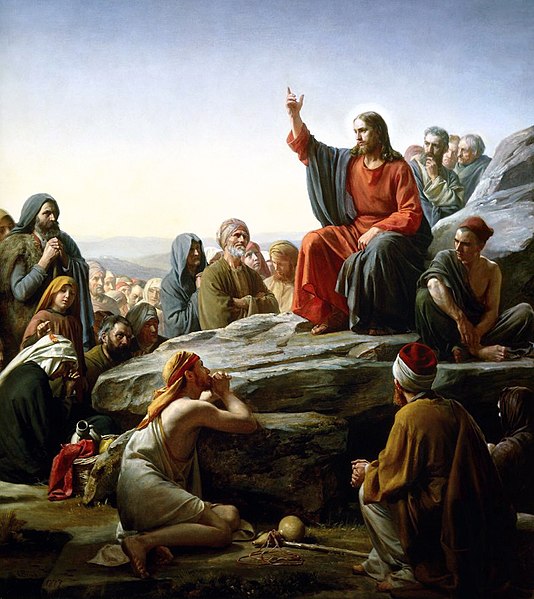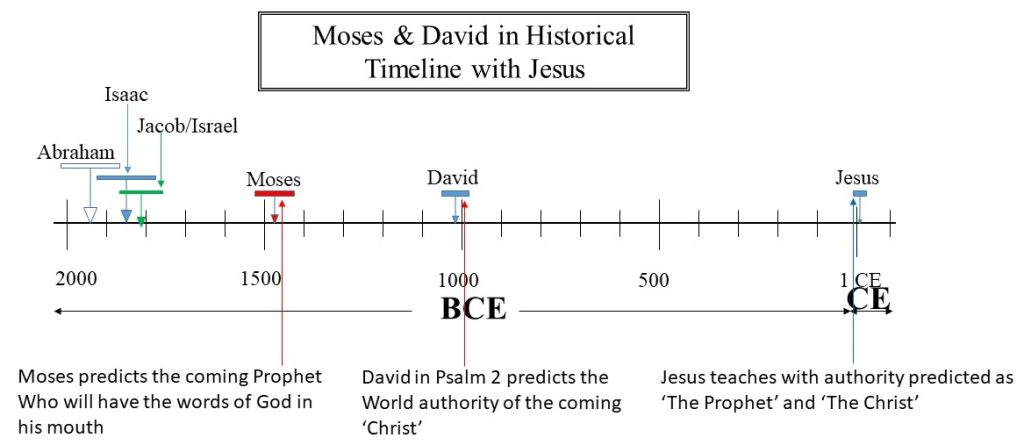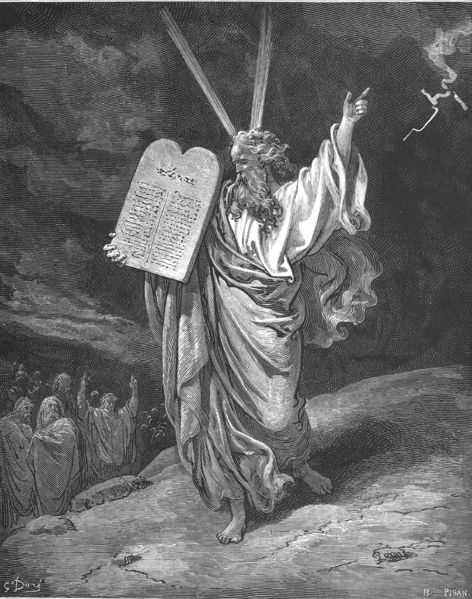Perhaps the most common stereotype people make about Jews regards money. Rumors, wild conspiracy theories, and slander have falsely been directed at Jews side-by-side with sinister associations of wealth and power.

But there is little doubt that some outstanding Jews have demonstrated financial shrewdness. We highlight some here.
The Legendary Rothschilds
The Rothschilds were a Jewish family operating as private bankers to governments across Europe. They began during the Napoleonic wars (1803-1815). Based in London, they had family connections across European capitals. They earned millions in interest from government loans and securities from many European nations. The Rothschilds ingeniously invested their profits into railroads and other infrastructure across the European continent as the Industrial Revolution spread.
Investment banking in the Americas
Meanwhile, on the other side of the Atlantic, Jewish entrepreneurs founded American investment banks which today dominate global commerce:
- Goldman Sachs (founded 1869 by Marcus Goldman),
- Lehman Brothers (founded 1847 by Henry Lehnam and bought out by Barclays)
, Bear Sterns (co-founded in 1923 by JosephBear and bought out by JP Morgan Chase),- Salomon Brothers (founded by descendants of Haym
Salomon and bought out by Citigroup)
These were all founded by entrepreneurial Jews with a knack for finance and investment.

George Soros
Today George Soros (1930 – ) carries the same reputation. Born into a Jewish family in Hungary he relocated to the United States, beginning his own investment hedge fund in 1969. Wikipedia reports his net worth as $9 billion – after having given away $32 billion. He is most known for betting against the bank of England in 1992. This brought the UK’s Pound sterling to its knees, earning him billions in the process.
Central Bankers
Jews have a prominent association with the US Federal Reserve. The Fed is the most powerful central bank in the world. It affects the economic livelihood today of everyone on the planet. It came into existence in 1913 primarily through the work of Jewish-German immigrant Paul Warburg. The past three chairmen of the US Federal Reserve, Alan Greenspan (1987-2006), Ben Bernanke (2006-2014), and Janet Yellen (2014-2018) are Jewish.

Federalreserve, PD-USGov-BBG, via Wikimedia Commons
On a per capita basis Jews tend to demonstrate a keen entrepreneurial spirit with a financial interest that has brought many into high profile financial roles. But there is nothing sinister or a world conspiracy behind this as some have suggested.
Many do not realize it, but the most well-known Jew in history, Jesus of Nazareth, also taught and lived as an investor. However, he used non-traditional metrics in his investment outlook. We look here at the investment philosophy of this representative of Israel.
Jesus as Investor
Using a sufficiently long investment time horizon is the key to investor and banker success. They also need to properly assess the ability of borrowers to repay loans. Jesus, equally gifted as his Jewish brethren surveyed above in financial thinking, used a totally different investment time horizon than they did. This changed his risk/reward financial thinking, radically altering it from ours.
Jesus summed up his overall view on investment risk/reward with this.
19 “Do not store up for yourselves treasures on earth, where moths and vermin destroy, and where thieves break in and steal.20 But store up for yourselves treasures in heaven, where moths and vermin do not destroy, and where thieves do not break in and steal.21 For where your treasure is, there your heart will be also.
Matthew 6:19-21
Jesus’ views on risk/reward
Say what you will about the reality of his long-term perspective on ‘treasures in heaven’, his valuation of ‘treasures on earth’ is shrewdly spot on. The Rothschilds have lost the financial power that they had 150 years ago. The European wars, the wealth confiscated by Nazis from Jews, and the nationalizing of European industries greatly reduced the Rothschilds’ family wealth. Most of the American banks surveyed above underwent bankruptcy or takeovers by other banks. They no longer operate. Jesus’ assessment that amassed value on earth corrodes has been demonstrated time and again. We do not always recognize it because our time horizon is short. But he used a time horizon stretching far out.
Jesus’ Investment Time Horizon
Jesus’ investment time horizon was uniquely long. Thus, he looked at value from the perspective of eternity in the Kingdom of God. Seeing value from his perspective allowed another rich Jewish investor to likewise assess value differently. The Gospel records it like this:
19 Jesus entered Jericho and was passing through.2 A man was there by the name of Zacchaeus; he was a chief tax collector and was wealthy.3 He wanted to see who Jesus was, but because he was short he could not see over the crowd.4 So he ran ahead and climbed a sycamore-fig tree to see him, since Jesus was coming that way.
5 When Jesus reached the spot, he looked up and said to him, “Zacchaeus, come down immediately. I must stay at your house today.”6 So he came down at once and welcomed him gladly.
7 All the people saw this and began to mutter, “He has gone to be the guest of a sinner.”
8 But Zacchaeus stood up and said to the Lord, “Look, Lord! Here and now I give half of my possessions to the poor, and if I have cheated anybody out of anything, I will pay back four times the amount.”
9 Jesus said to him, “Today salvation has come to this house, because this man, too, is a son of Abraham.10 For the Son of Man came to seek and to save the lost.”
Luke 19: 1-10
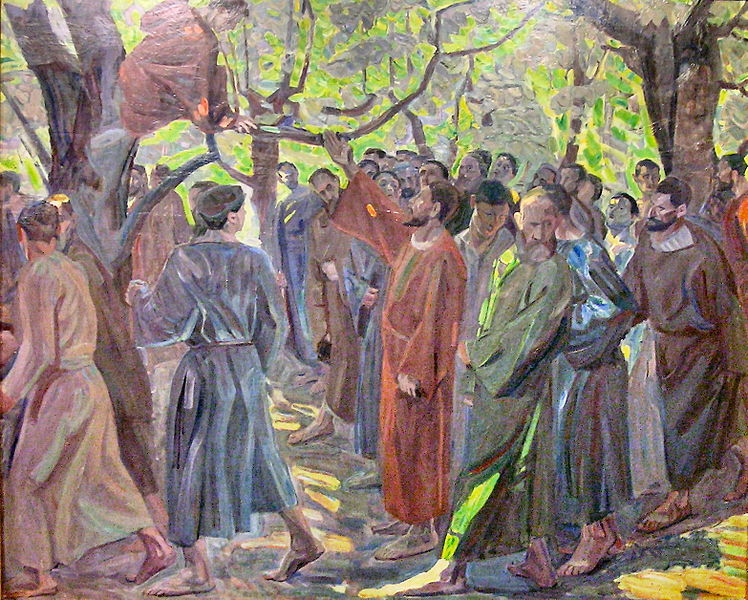
Randers Museum of Art, PD-US-expired, via Wikimedia Commons
Does Money Serve or Master?
The pledge by Zacchaeus to donate his assets to the needy and to promote the first ever ‘Truth and Reconciliation’ project does not mean owning temporary earthly assets are wrong. Rather as Jesus said elsewhere:
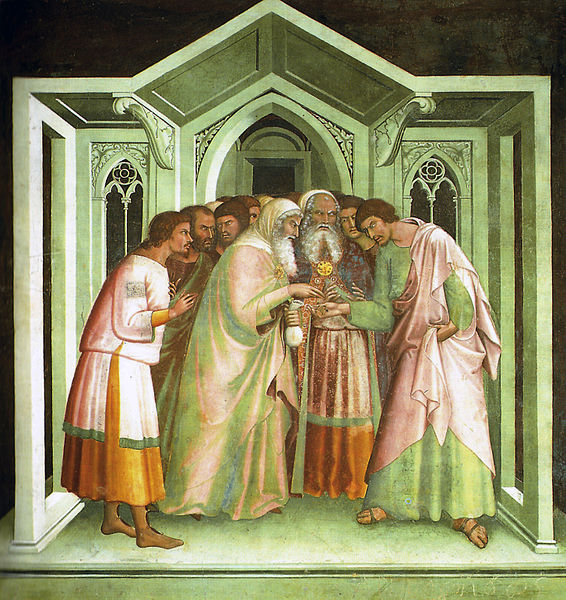
Lippo Memmi, PD-US-expired, via Wikimedia Commons
“No one can serve two masters. Either you will hate the one and love the other, or you will be devoted to the one and despise the other. You cannot serve both God and money.
Matthew 6:24
We usually think that money serves us, but our nature is such that instead we easily end up serving money. Then it becomes impossible to value assets, life and our souls (psyche) in the time horizon of eternity.
Jesus held a unique financial perspective regarding the Kingdom of God. Therefore, right after talking to Zacchaeus, Jesus taught this financial lesson.
The Story of the Ten Minas
11 While they were listening to this, he went on to tell them a parable, because he was near Jerusalem and the people thought that the kingdom of God was going to appear at once.12 He said: “A man of noble birth went to a distant country to have himself appointed king and then to return.13 So he called ten of his servants and gave them ten minas.‘Put this money to work,’ he said, ‘until I come back.’
14 “But his subjects hated him and sent a delegation after him to say, ‘We don’t want this man to be our king.’
15 “He was made king, however, and returned home. Then he sent for the servants to whom he had given the money, in order to find out what they had gained with it.
16 “The first one came and said, ‘Sir, your mina has earned ten more.’
17 “‘Well done, my good servant!’ his master replied. ‘Because you have been trustworthy in a very small matter, take charge of ten cities.’
18 “The second came and said, ‘Sir, your mina has earned five more.’
19 “His master answered, ‘You take charge of five cities.’
20 “Then another servant came and said, ‘Sir, here is your mina; I have kept it laid away in a piece of cloth.21 I was afraid of you, because you are a hard man. You take out what you did not put in and reap what you did not sow.’
22 “His master replied, ‘I will judge you by your own words, you wicked servant! You knew, did you, that I am a hard man, taking out what I did not put in, and reaping what I did not sow?23 Why then didn’t you put my money on deposit, so that when I came back, I could have collected it with interest?’
24 “Then he said to those standing by, ‘Take his mina away from him and give it to the one who has ten minas.’
25 “‘Sir,’ they said, ‘he already has ten!’
26 “He replied, ‘I tell you that to everyone who has, more will be given, but as for the one who has nothing, even what they have will be taken away.
Luke 19:11-26
Owners? Or simply Managers?

Without extracting all the meaning from this story a few observations are instructive:
- The minas, through the whole story, always belong to the nobleman. He loaned them to the servants, looking for a return on his investment. The servants managed the minas but never owned them.
- Jesus represents himself as the nobleman in this story. He places us as the servants. We have been entrusted with ‘minas’, representing assets, value, opportunities and our natural talents. He expected the servants to produce a good return as any financial manager would for his investment clients.
Ultimately we do not own anything
We go through life thinking that our natural talents and opportunities are ours, but in reality, they are not ours, they have been loaned to us. Jesus shrewdly uses this story to remind us that we do not own our lives, health, opportunities, and even our future. We have to admit that this is true because we cannot retain them. Eventually, we have to give them all up. Jesus reminds us that these have been loaned to us temporarily.
Finally, as any good investor, Jesus explains that those who have produced a return on their investment will have it all returned to them with opportunities for further investment. His Kingdom will give them more than they could have imagined.
We generally do not associate Jesus with shrewd financial thinking, as we do with his Jewish brethren, but he kept single-minded attention on investing. He invites us to co-invest in his investment, which cannot be lost, stolen, or destroyed. It is just that, like other Jewish financial visionaries, he saw further than we can. He looked as far as the establishment of His Kingdom. In that sense, he showed himself to not be a herd investor (looking to others to see what to invest in), but a shrewd contrarian investor who saw attainable value that others could not see.
Jesus’ Investment Price
We might think of His Kingdom as ethereal, intangible or unreal. But convinced of the reality of this investment return, he passed over all other investments. He put all his equity into it. Nathan Rothschild said about his investment philosophy:
“the time to buy is when there’s blood in the streets.”
Rothschild meant that we should invest when others are panic selling. Then we will get our investment at a good price. We see how Jesus invested into The Kingdom with this maxim when his good friend dies.



